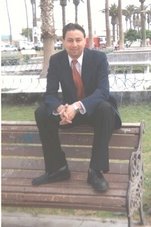Lesson 25: Unit 50
LIFE AT WORK
David: Today we look at life at
work.
Natalie: We talk about working
conditions.
Kevin: And we meet this man. Bill
Macintosh, the manager of an oil platform in the North Sea.
Natalie: What kind of work do you
do? Do you like it?
1)
I work as a press officer for the Bank of England so
what I have to do is to explain the bank’s policies to the press and the public
in general and answer their questions. I like explaining things so I enjoy my
job.
2)
I’m a student and I definitely like going to school.
3)
I’m a professional footballer and manager and I love
it.
4)
I’m a teacher and I like it because I find it very
stimulating and I enjoy working with people particularly young people.
5)
I’m an archaeologist and enjoy my job I do the thrill
of discovering things that have lain hidden
for hundreds of thousands of years and I enjoy trying to tell others about it
as well.
Natalie: What was your first job
kevin?
Kevin: Well, when I was a student
I worked in a hotel during the vacation.
Natalie: Why?
Kevin: Why so that I could make
some money.
David: How much did you make?
Kevin: Not much. The wages were
very low.
Kevin: I worked in a hotel so
that I could make some money but the wages were very low wages or salary or pay.
That’s the money you earn from your job.
|
Wages
|
Salary
|
Pay
|
Robot 1:The working conditions
here are terrible.
Robot 2: Terrible?
Robot 1: They’re so bad that I
intend to complain to the management.
Robot 3: Excuse me.
Robot 2: Really?
Robot: Yes. I mean the wages are
hopeful.
Robot 3: May I say something
just…
Robot 2: Just a minute we don’t
get any way.
Robot 1: Exactly and we never get
a break.
Robot 2: We don’t need a break.
Where machines we never get tired we never go wrong.
Robot 3: But I demand the right
to have a break.
Robot 1: Let me finish as I was
saying. I demand the right to have a break.
Kevin: The working conditions
weren’t very good when I worked in the hotel either. I worked for 10 hours a
day. I worked for so long that I never had time to do anything else, except
sleep and the meal breaks were so short that I never had time to eat anything I
was hungry all the time and the wages were so low that I didn’t save any money.
David: Kevin worked in a hotel so
that he could earn some money that was his reason for working there, but the
wages were very low. The result was he didn’t save any money at all
|
…so long that…
|
…so short that…
|
…so low that…
|
|
Reason
|
Result
|
Kevin: Off the north coast of
Scotland in the North Sea. There are oil platforms which work 24 hours a day
pumping oil and gas from under the sea. Bill McIntosh is the manager of a North
Sea oil platform. Let’s find out what the work of an oil platform is and how
that work is organized.
The platforms that we walked from
produce oil and gas and within the platform. We actually we make the gas; we make
the oil and gas safe. We process it just a little. We then export it as we call
it through a pipeline to sure once it gets to the shore it’s then loaded on a
large tanker and taken to some other part of the world.
When we’re working offshore we
work what we call a shift pattern and we walk two weeks offshore and then we
come home for two weeks on shore. Typically my day will start at five in the
morning. I will be my desk generally at about
5:30 or six in the morning. The day shift crew they will come on at
seven and they will walk right through until seven later that day. Breakfast we
normally have breakfast between six and seven thirty something like that. Lunch
break is about eleven-thirty through to 12:30 and then the evening meal which
for the night shift is breakfast time is 6:30 until seven –thirty, and then for
the night shift crew because bear in mind and oil production platform runs 24
hours a day. Then around eleven-thirty
to 12:30 is the midnight meal.
I know production platform
offshore is interesting because it’s where you live as well as the place that
you work so you can’t unlike on shore you can’t drive home. So offshore we have
a gymnasium , for example, which has a multi gym running machines and stuff
like that and we have snooker, billiards, table tennis. We have quite a variety
of things and we have a large cinema and we take satellite television so we can
get news as it virtually as it’s happening the normal working day off shore is
12 hours. That occasionally stretches to 15 hours, but the day itself is very
demanding the work itself is quite demanding so that is usually only three or
four hours at the most after the end of the shift to occupy yourself. People
tend to be in bed at nine-thirty or ten o’clock at night. We look for as much
of the home comforts, as we can possibly get so the accommodation that we have
is very good. But importantly the meals and you are walking a long day it’s a
minimum of a 12 hours day. We’re walking an 80 for our week and the food is
commensurately good. Sometimes too much food.
|
Shifts
|
The day-shift
|
The night-shift
|
|
A 12 hour day
|
An 84 hour week
|
|
Kevin: The oil platform is
situated close to the Arctic Circle. What are the hazards the dangers of working
there?
The particular platform that I
actually work on in fact is in an area we know as the Shetland basin which is
very much in the northern North Sea. Now that’s exposed to quite a variety of
climate quite rapid climate changes as well. Now this is typically in the month
January, for example, we can get wind speeds in excess of 100 knots. The rain
can be very heavy the snow can be very heavy and because we are only four
degrees below the Arctic Circle. We can get quite a severe drop in temperature.
The seas in these northern waters can really be quite violent typically we
might have waves of around 12 or 15 metres in height. And they come in from the
north Atlantic and they very powerful. It is particularly important to have
firm and fixed safety procedures offshore. It is potentially hazardous environment
tipically, no one can leave the accommodation to go out into the workplace
unless they are the properly attired. No that means as a minimum. They will be
wearing a safety helmet flameproof,
coveralls, protective eye glasses and steel protective boots.
Natalie: Violent seas, rapid
climate changes and heavy rain and snow.
Kevin: And the platform itself is
so dangerous that the workers have to wear protective clothing.
|
Safety helmets
|
Protective eye-glasses
|
Kevin: Why does anyone want to
work there?
There are a number of reasons for
people wanting to work offshore. Clearly because it’s a difficult environment
then the pay scale is as much greater is much higher. There are a number of
additional benefits to working off shore one of the main ones, of course, is
perhaps the free time that you can get you do what the two weeks offshore, but
you do get a clear two weeks on shore. Now in addition to that because it is a
relatively hazardous environment working offshore. Then other benefits, pension
benefits medical benefits, which are perhaps a little better than you might
ordinarily expect to get onshore.


No hay comentarios:
Publicar un comentario